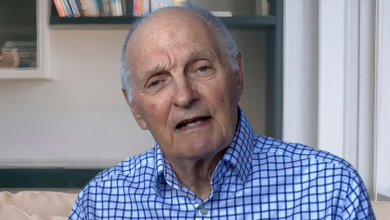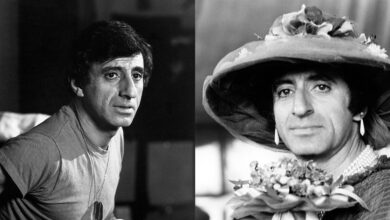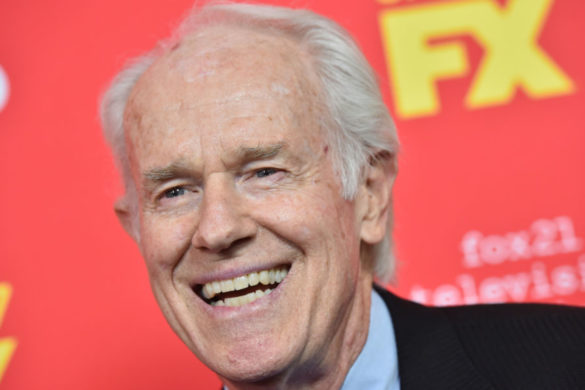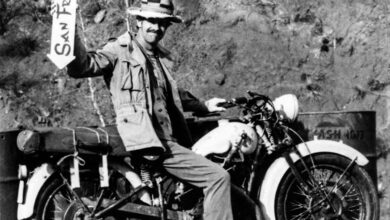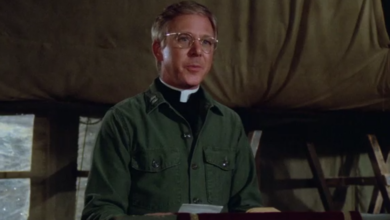“M*A*S*H” Is Still the Perfect TV Series Finale — But These 6 Shows Have Come Close
Even four decades later, “Goodbye, Farewell and Amen” still sets the bar for how to wrap things up on the small screen
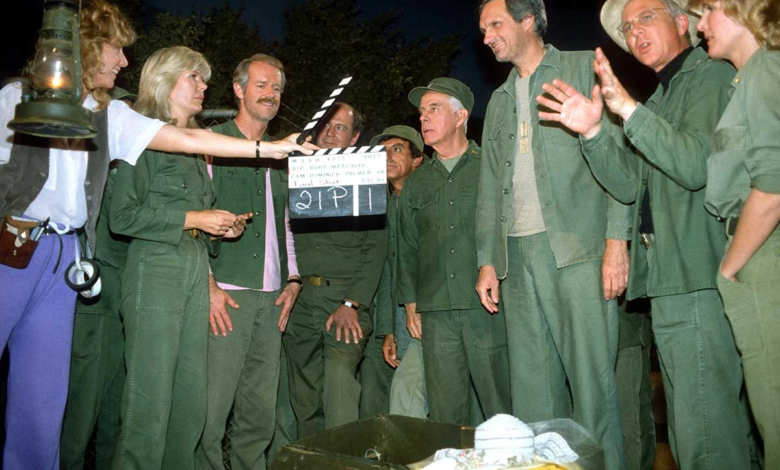
On February 28, 1983, over 125 million people tuned in to watch the two-and-a-half-hour finale of M*A*S*H, the long-running dramedy about a team of doctors in the Korean War. At the time, it was the single most-watched program in TV history.
Even for a show that had racked up plenty of Emmys (and a Peabody) over its decade-plus run, the final episode (“Goodbye, Farewell and Amen”) was a particular standout. Directed by series star Alan Alda, the movie-length finale ostensibly chronicled the final days of the war. But the episode really served to bring closure to the myriad of characters at the 4077th Mobile Army Surgical Hospital, who had grown into a dysfunctional but tight family over the course of 11 seasons.
The ending was possibly the last time pretty much all of America stayed glued to their sets, outside of the Super Bowl. “For many, the end of M*A*S*H was too important to miss,” Robert D. McFadden wrote in the New York Times the morning following the series finale. “School board meetings, athletic contests and civic events were canceled. On college campuses, studies — even in the throes of midterm examinations — were forgotten. Bars were renamed for the program. Homes and apartments were turned into elaborately decorated “swamps.” There were M*A*S*H T-shirts, M*A*S*H dog tags and an array of other M*A*S*H paraphernalia.”
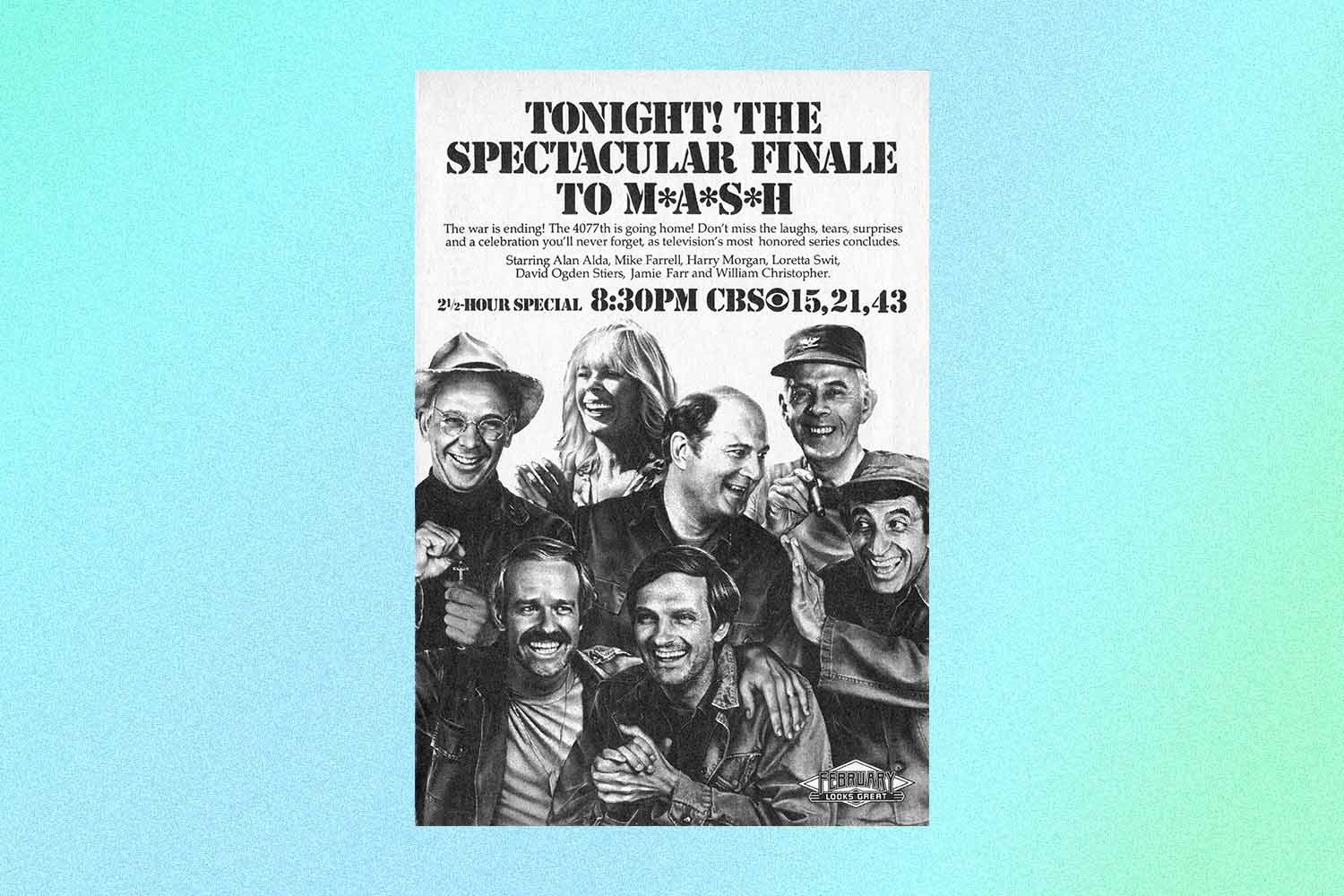
As the show’s heart and soul, Hawkeye Pierce (Alda) began the episode at a psychiatric hospital. During his therapy, Pierce continually recounts a story about picking up a group of refugees and avoiding an enemy patrol. While the other characters — Charles Winchester, B.J., Houlihan, Klinger, etc. — experience a few closing arcs and deal with a tank that’s unceremoniously run over the camp’s latrine (and becomes an enemy target) — this is truly Hawkeye’s story. And the eventual revelation in Hawkeye’s fragmented retelling of the refugee tale is harrowing.
Based on Richard Hooker’s 1968 novel MASH: A Novel About Three Army Doctors and Robert Altman’s seriocomic 1970 film, M*A*S*H had featured plenty of death and tragedy before (particularly the season three off-screen death of commanding officer Lt. Col. Henry Blake; also, remember, the show’s theme song was called “Suicide Is Painless.”). But there was almost always a laugh track, as well as Klinger’s cross-dressing and plenty of Hawkeye/Trapper John/B.J. camp antics to keep the mood somewhat light.
How This “Diff’rent Strokes” Episode Changed TV History
Forty years ago “The Bicycle Man” upended the sitcom’s structure and featured a chilling look at pedophilia. It was also really awkward.
Season 11 had notably done away with the canned laughter — and yet, the increasingly serious war show had maintained its lofty ratings and place in the pop culture zeitgeist. It certainly lasted far longer than the actual Korean War, even if the series was more of an allegory for the Vietnam War.
I saw the finale episode a few years after it aired, then again about a decade later. Even now, nearly 30 years after the last viewing, I can remember individual scenes clearly, from Hawkeye’s tearfully horrified admission to the last few minutes, which featured the best (and most honest) goodbye and ode to male friendship ever put on the small screen. Forty years later, Hawkeye and B.J.’s farewell still resonates (“I know how tough it is to say goodbye so I’ll say it…”).
It was the rare perfect ending for a series — marred, a bit, by a terrible spinoff called AfterM*A*S*H that ran for two seasons to critical and viewer indifference.
No matter. A show going out on top was and remains a rare feat, as our list of best TV series finales below proves. It’s not always the fault of the writers: a series often ends before the creators are given a chance to provide closure. Yet even a planned ending is a tricky balancing act: A show has to maintain its usual rhythms while winding down storylines for characters that have often run for years.
In lieu of spotlighting the failures of series finales of yore — looking at you, Lost, Battlestar Galactica and Dexter — or shows that ended in a polarized manner (most famously on The Sopranos), we present a few other shows that went out on top. (The list is by no means complete: Feel free to add Mr. Robot, Angel, Legion, the UK series Fresh Meat and the UK version of The Office, but please don’t mention Friends or Seinfeld).
The Leftovers
HBO’s rapture drama started fairly grounded, but by the third and final season, co-creators Damon Lindelof and Tom Perrotta (who wrote the original novel) had introduced spiritual journeys, a karaoke-laden alternate reality, a main character literally coming back to life and a finale (“The Book of Nora”) that was beautifully cryptic, taking place a decade after most of the series’s main events and in a small town in Australia. After all the cults and death and millions of people disappearing, it was all really a love story. Bonus: it made up for Lindelof’s frustrating conclusion to Lost.
True Detective
Season one, obviously. While it didn’t quite match the visual, uncut frenzy of episode four’s “Who Goes There”, the admittedly divisive finale (“Form and Void”) for HBO’s mystery/thriller anthology featured a bit too much green screen and only a modestly thrilling final showdown taking place in a labyrinth. But no, this is and always was the story of Marty (Woody Harrelson) and Rust (Matthew McConaughey), the latter who admits — after the final battle and years of existential wrangling — that “the light’s winning.”
Better Call Saul
“Saul Gone” is the highest-rated series finale on IMDb (9.8/10), and the show deserves even greater praise for crafting six excellent seasons out of what was essentially a prequel to Breaking Bad … meaning viewers already had a pre-ordained fate for Jimmy/Saul/Gene (Bob Odenkirk). Still, the final episode here does peek into the future and offers a twisted variation on redemption.
Parks and Recreation
“One Last Ride” was the rare finale that utilized a time jump, relatively positive conclusions for all its characters (even for Garry, for the most part) and, yet, still offered laughs.
Feel Good
A comedic and dramatic standout, this British series only lasted two seasons and 12 episodes, though the short run was seemingly by choice. The series deftly tackled sobriety, love and cancel culture. Mae Martin, in a semi-autobiographical role, stars as herself, a Canadian who works and does stand-up in England. They (Martin identifies as non-binary) are also dealing — and not dealing — with addiction issues and gender identity, which was perfectly and touchingly discussed in the finale.
Fleabag
Speaking of short-lived but beloved British comedies, Fleabag somehow became better in its second and final season, where a budding romance between Fleabag (Phoebe Waller-Bridge) and The Priest (Andrew Scott) fails in a heartwrenching manner…and then Fleabag breaks up with us, the viewer and fourth wall confidant.

